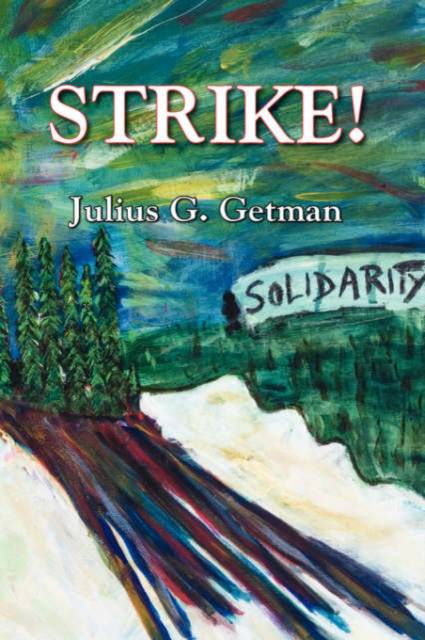
- Retrait gratuit dans votre magasin Club
- 7.000.000 titres dans notre catalogue
- Payer en toute sécurité
- Toujours un magasin près de chez vous
- Retrait gratuit dans votre magasin Club
- 7.000.000 titres dans notre catalogue
- Payer en toute sécurité
- Toujours un magasin près de chez vous
Description
For anyone who thinks that strikes are only about money, this book will be a real eye-opener. Set in a rural Maine town in the 1980s, Getman draws a memorable portrait of worker solidarity as a union of papermakers struggles to protect a way of life that previous generations had sacrificed to give them. Jack Getman tells the story of a strike from the inside, putting in human terms events that often are considered only from an economic or legal perspective. A natural psychologist, Getman's sharply-drawn depictions of the anxieties and uncertainties that beset his characters as they seek to deal with the forces of the new economy give his story a special poignancy and force. His sure-handed account also demonstrates how laws originally intended to protect workers have undermined their ability to act in concert. Thomas C. Kohler, Boston College Law School. Strike! takes the reader deep inside a community that both comes together and divides over a dramatic labor strike. We see strategizing and second-guessing, romance and resentment, solidarity and tragedy, all from the divergent perspectives of engaging and well-drawn characters. Cynthia Estlund, Professor of Law, New York University. Author of Working Together: How Workplace Bonds Strengthen a Diverse Democracy. Like most good works of fiction, Strike! is based on a deep factual understanding of its subject. Jack Getman puts human faces on often abstract and sterile discussions of the painful struggles to protect and promote workers' interests in a world dominated by corporations motivated by short-run profits. F. Ray Marshall, former Secretary of Labor, Carter administration, Professor Emeritus, the University of Texas Tom Wolfe's famous call for social realism in American novels has received little response. But now comes Strike!. Julius Getman, with his unique combination of local knowledge and storytelling gifts, brings the story to life with power, nuance and compassion. Mary Ann Glendon, Professor of Law, Harvard University
Spécifications
Parties prenantes
- Auteur(s) :
- Editeur:
Contenu
- Nombre de pages :
- 230
- Langue:
- Anglais
Caractéristiques
- EAN:
- 9781891386732
- Date de parution :
- 30-10-06
- Format:
- Livre broché
- Format numérique:
- Trade paperback (VS)
- Dimensions :
- 156 mm x 234 mm
- Poids :
- 326 g







